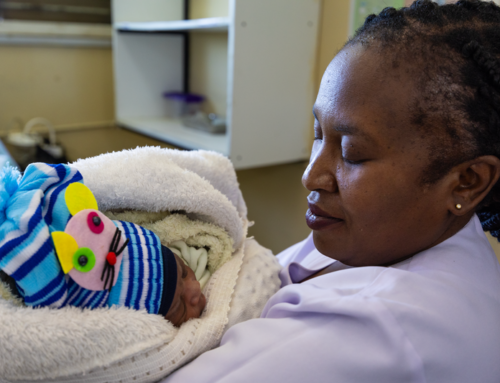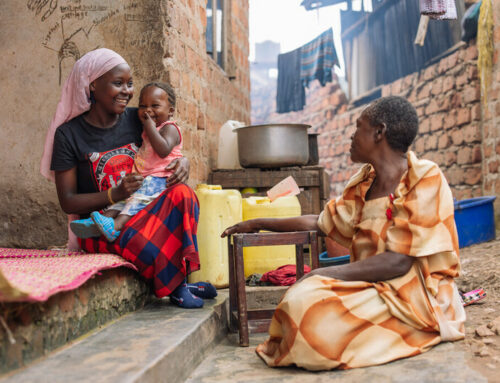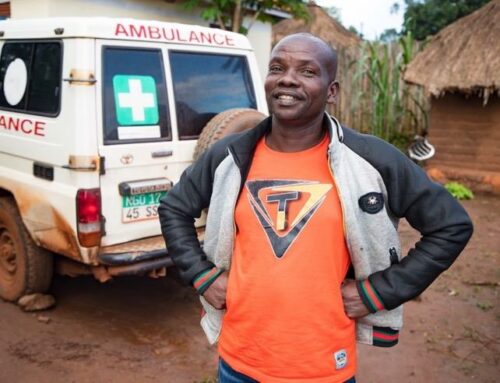Assisting pregnant women safely give birth during COVID-19
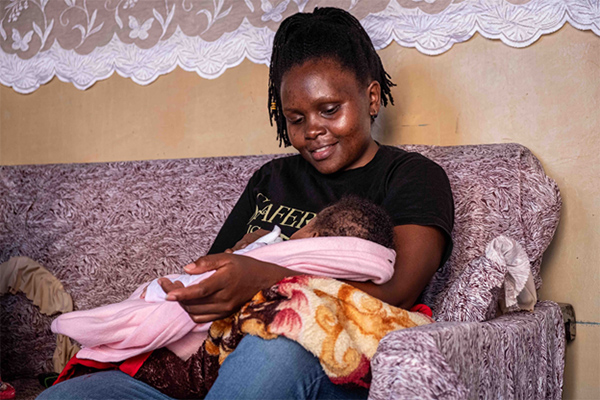
Jacinta safely gave birth during the COVID-19 pandemic, thanks to the help of a Amref-trained Community Health Worker (Photo: Joost Bastmeijer/Amref Health Africa).
The Role of CHWs in their Community
Jacinta is a young mother who recently gave birth during the COVID-19 pandemic in Emali, Kenya. She is a regular patient of Ann’s – the Community Health Worker (CHWs) we’ve introduced you to in past Field Updates. According to Jacinta, Ann was a huge help to her during her recent pregnancy. CHWs provide important health information to their community, provide basic health services, and refer more complicated cases to a health facility or hospital for treatment.
New Challenges with COVID-19
Like so many, Jacinta says she struggled through the height of COVID-19 in March: her husband couldn’t find work, her kids were home from school, and she was pregnant: “Our house is not that big. We managed, but it wasn’t easy. It was hard no matter what we did. It was expensive to stay at home too. Suddenly, we had to buy soap, sanitizer, masks and extra water for washing.”
Despite being pregnant, Jacinta was too afraid to go to the nearest health facility for care: “I was afraid to leave the house, I was afraid I might get coronavirus at the clinic.”
This changed when Ann educated her on the importance of delivering a child under the care of a trained health worker – even during a pandemic. Ann assured her that she would be safe at the health facility.
“Ann told me: go to the clinic when your child is about to be born. If you give birth in the clinic and something unforeseen happens, the nurses can intervene quickly. If you give birth at home and there is a complication, then you have a big problem.”
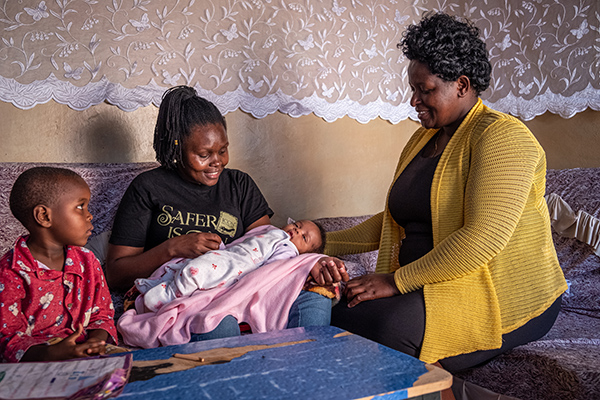
Jacinta with her newborn baby named Innocent and Ann, the CHW who assisted her (Photo: Joost Bastmeijer/Amref Health Africa).
Giving Birth in the Middle of a Pandemic
Jacinta says that Ann was also invaluable on the night she gave birth: “At two in the morning I felt that I was going to give birth, so I decided to go to the clinic. That was tricky, because there were no taxis due to the curfew. Then I called Ann and she helped me. She arranged for a motorbike taxi to pick me up and called the clinic to let them know I was coming. She also secured a note from the clinic that the driver could show police in case they were stopped.
I was very happy with Ann’s help, as two pregnant women had died recently because they could not get to the clinic at night. Once we arrived, everything went smoothly, because there were more nurses in the clinic thanks to Amref. My baby Innocent’s birth only lasted four hours and went well.”
Community health workers like Ann are so important for people like Jacinta and baby Innocent.


